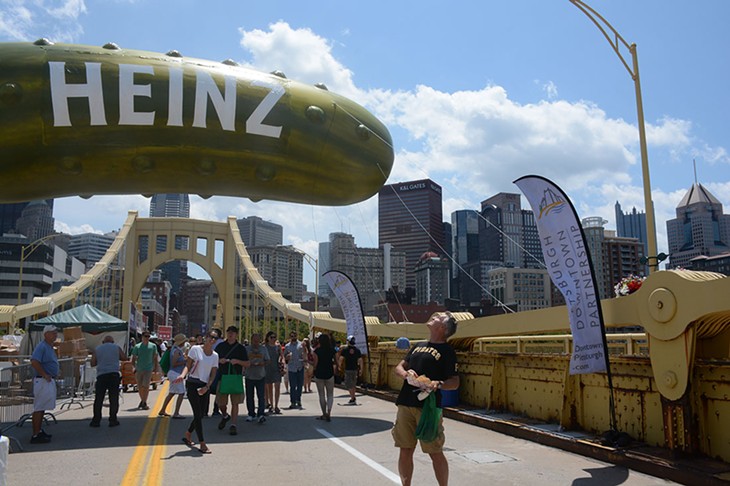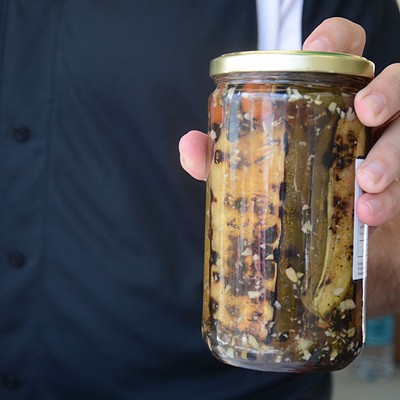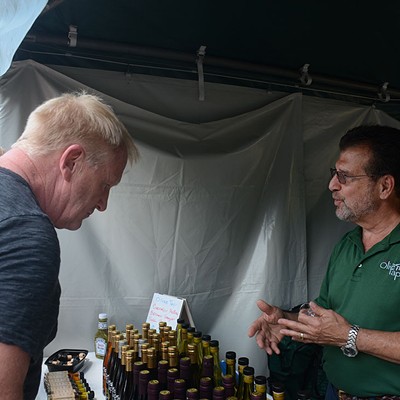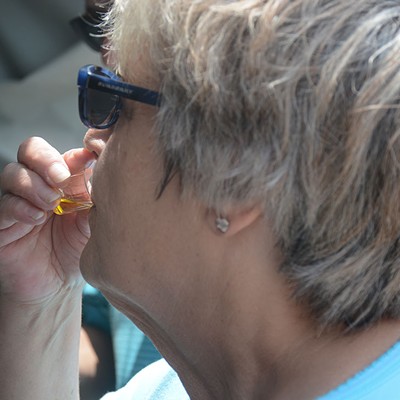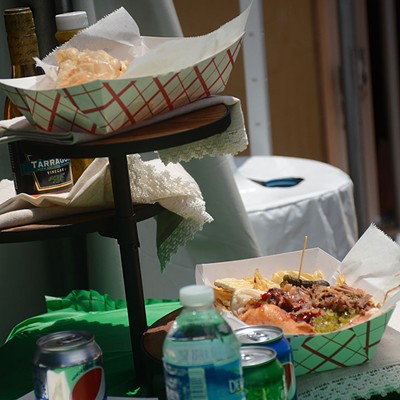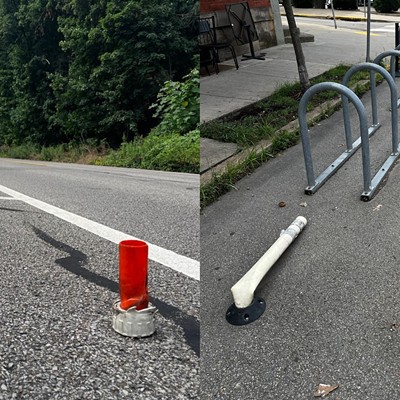Don’t be confused by the name. While a big inflatable pickle announces it’s time again for Picklesburgh, it doesn’t mean everything you find is green and dill.
In its second year, the festival featured all manner of things to make your mouth burn, eyes squint and lips pucker, but still keep you coming back for more. Besides the obligatory fried pickles, hot-pepper relishes and pickle lemonade, there were also hot sauces, vinegars, mustards and IPAs, all featured along the Rachel Carson Bridge on July 16 and 17.
Randy’s Pickles, founded by Andrew Rainey in 2014, served up the eponymous nibble to festival-goers. However, the pickles plied here were far from the average dill. Just ask his mom, Karen Graham.
“He just wakes up in the middle of the night with these ideas,” Graham said.
Some of those ideas include pickling cucumbers after grilling them, which leaves behind a “bitter, kind of savory char-grilled flavor,” as Rainey describes it. They also had a black-pepper pickle and “Mustache-on-Fire” pickles with hot peppers.
Along with Rainey and Graham were Pat Routa and Ryan Snyder. Rainey, Routa and Snyder all met as freshmen at Kent State University, and when Rainey decided to enter the pickling business, they followed.
“None of us went to school to work with food, so it’s been a learning curve,” Routa said.
How did the brining start? Well, of course, it starts with a girl.
“I was dating a girl in college and we broke up, so I needed a comfort food,” Rainey said. “[So] I went to the local grocery store. I looked at the pickle shelf and thought, ‘This is all garbage.’”
Further down the bridge, Pittsburgher Tom Motta sells his brand of hot sauce. It’s made entirely from ingredients he grows himself, without pesticides and artificial fertilizers, at three locations around town.
“It all began with a passion for spicy food,” Motta said.
After feasting on Indian and Thai foods, Motta realized that food “wasn’t spicy enough for me.” So, in typical do-it-yourself fashion, he started his own company.
However, Motta is inspired by more than a burning tongue. After losing both his parents to cancer, Motta was intrigued when he read studies that report capsaicin — the active component in peppers that makes them hot and spicy — can kill cancer cells.
Perhaps that helps explain the wallop of his “Pittsburgh-style” hot sauce.
Just like his hometown, “It’s intense, it’s in your face, it’s bold, and if you double-cross it, you’re screwed,” Motta said.

